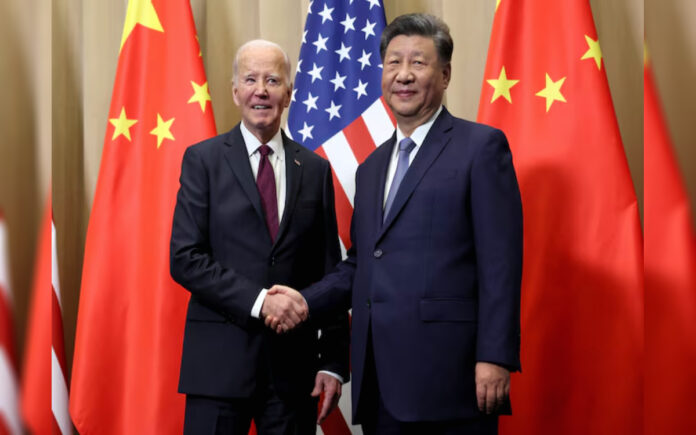Lima: U.S. President Joe Biden and Chinese President Xi Jinping have reached a landmark understanding on nuclear weapons control, affirming that decisions on their use should remain under human authority rather than being delegated to artificial intelligence. The agreement was announced by the White House on Saturday following their discussions.
Human Control Over Nuclear Decisions
“The two leaders affirmed the need to maintain human control over the decision to use nuclear weapons,” the White House stated. Both leaders also emphasized the importance of responsibly developing AI in military applications, warning of potential risks if mishandled.
China echoed this sentiment in its official summary of the meeting, although its foreign ministry has yet to issue a detailed response.
A Step Toward Progress
While the agreement marks a significant step, it remains uncertain whether this will lead to concrete actions or further dialogue. The U.S. has long urged China to engage in nuclear arms talks, with limited success. Formal negotiations remain stalled, despite brief official-level discussions in November.
The U.S. continues to voice concern over China’s growing nuclear capabilities. According to the Pentagon, Beijing’s operational nuclear warheads are projected to exceed 1,000 by 2030, a dramatic increase from the estimated 500 warheads it currently possesses. By comparison, the U.S. and Russia each have over 1,700 operational warheads.
AI and Military Development
China and the U.S. initiated formal bilateral discussions on AI in May, with the talks focusing on broader concerns rather than specific ties to nuclear weapons decision-making. Both nations have acknowledged the transformative potential of AI in military operations, underlining the importance of prudence and shared responsibility.
Also Read | Mount Fuji to Introduce China-Made Tram for Eco-Friendly Tourism
China’s Evolving Nuclear Arsenal
China’s nuclear advancements in recent years include next-generation ballistic missile submarines, hypersonic glide vehicles, and regular sea-based nuclear patrols, solidifying its nuclear triad status. Despite these developments, Beijing maintains a “no first use” policy and describes its nuclear deterrence as “minimal and modern”.
In semi-official exchanges, Chinese scholars have dismissed Western assessments as exaggerated, reiterating that China’s policies remain consistent.
Also Read | Netflix: 60 Million Households Watched Paul-Tyson Match
The Bigger Picture
The Biden administration recently updated its classified nuclear guidance, clarifying that the revisions were not aimed at any specific country or threat. However, ongoing concerns persist about the nuclear ambitions of China, North Korea, and Russia.
The Biden-Xi dialogue on nuclear arms and AI introduces a rare moment of consensus on issues of global security, potentially laying the groundwork for more substantive engagements in the future.



